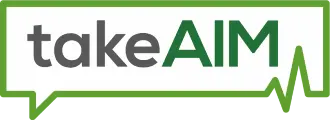For medical students, postgraduate training can seem horrendously long and complicated, a maze of hoops, hurdles and hidden traps that would be enough to put off even the most enthusiastic of aspiring physicians.
I remember how daunting the road ahead looked on my first day of FY1, but I’ve been lucky – I’ve loved almost all of my time in training. It’s been a hard graft, but it’s given me the skills I need to do the job I want to do.
So just how do you train to become a Consultant in Acute Medicine? I’m still a couple of years away from finishing my training, but here’s what my pathway looked like.
I completed my Foundation training in the South Thames region back in 2016. Having rotated round medical and surgical specialties, I’d decided I was a medic, though I didn’t know what flavour yet. I decided to apply for core training in General Medicine. Back then, this was a two-year program called Core Medical Training (CMT), but this has since been replaced by a there year program called Internal Medicine Training (IMT).
After some thought, I decided to take up a training post in Acute Care Common Stem instead. This is a program Medicine shares with Anaesthetics and Emergency Medicine. It involves two years rotating round the acute specialties (A&E, Medicine, Anaesthetics and Intensive Care), before spending a third year in your home specialty.
For me, this was the decision that turned me into an acute medic. While ACCS doesn’t give the same breadth of medical specialties than CMT/IMT does, I really valued the opportunity to hone my acute skills – first at the front door, then in a critical care environment.
I’ll admit that I was tempted by both ITU and A&E, but when I returned to Medicine in the third year, it felt like coming home. I was soon acting up as the medical registrar on-call and loving it. As an AMU registrar, I felt I had a great balance between challenging clinical work and my passion for teaching. That’s still true today.
After a year out as a teaching fellow (which was interrupted by a certain novel strain of coronavirus), I began my higher training in Acute Medicine. Higher training is the third – and longest – part of postgraduate training after Foundation and Core. By this point in your career, you’re an experienced doctor who can largely practise independently, but you’re still developing the skills you’ll need to work as a consultant.
As higher specialty trainees in Acute Medicine, we spend the majority of our time on AMU, but will rotate round four other specialties as well: Cardiology, Respiratory Medicine, Care of the Elderly and Intensive Care. I’ve spent the equivalent of four months in each of the above.
Some people worry that they’ll be treated like SHOs when you’re “visiting” other specialties, but for the most part I was treated as an – admittedly quite junior – registrar in all four. For example, as a Cardiology registrar I was running my own clinics and seeing ward referrals (albeit always under the close supervision of my brilliant consultant).
As much as I enjoyed my time in the specialties, AMU will always be home. As I become more experienced, I find I’m able to do my job more efficiently and can spend more time focussing on the things that matter: updating families, advocating for my patients and finding new ways to improve the training we offer students and juniors on AMU.
There are a few hoops you need to jump through in higher training – ultrasound accreditation, the subspecialty skill and one last multiple-choice examination. I chose medical education as my special skill and completed my MSc during ST4. Ultrasound training has proved a little tricky in some places, but with supervisors becoming more common, I think this is going to be a lot easier for the next generation of acute medics.
I’ve taken quite a lot of time out for parental leave and have been less-than-full-time for the last year, so I have a good while left before I’ll become a consultant. But the last ten years have gone by so quickly and I honestly can’t imagine having done anything else. If I had the chance, I’d pick the exact same path again.
If you’re considering acute medicine as a career, we’d love to hear from you. Feel free to explore our website and reach out to find out more.
